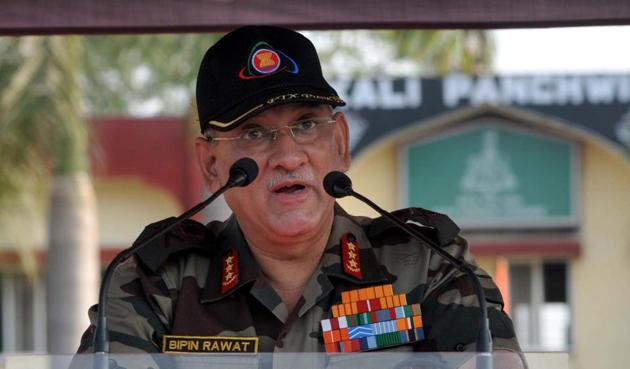Army chief appointment: No compelling reason to break the chain of seniority
Government should have given better reasons to elevate Gen Rawat than counter-insurgency experience.
Selecting an Indian Army chief is the prerogative of the government. As a practice, five to six names are put up to the Appointments Committee of the Cabinet and it is left to the panel to decide on who on that list is most suitable for the post.

All the commanders considered for this post are competent and meet the parameters needed to hold the coveted post. So, the government needs to have some very compelling reasons to bypass seniority.
There have been just two cases in the past when seniority was overlooked. Once, it was done in the case of Lt-Gen SK Sinha and the second for Lt-Gen Prem Bhagat, VC (Victoria Cross). In both these cases, the officers overlooked were competent officers but were perceived as forthright personalities. Perhaps the then government did not feel comfortable dealing with them.
Read | New army chief: When UPA govt didn’t follow seniority in appointment
For Lt-Gen Bipin Rawat’s elevation the justification offered by the ministry of defence is his experience in counter-insurgency operations and his long tenure along the Line of Control (LoC) in Jammu and Kashmir. Many defence experts too are giving the same argument as the ministry: That terrorism in Jammu and Kashmir and counter-insurgency or what is also known as “asymmetrical war” is of greater relevance to the country than a full-scale conflict with an adversary.
We seem to forget that the main task for the Indian Army, with its large troops and the essential arsenal, is to secure the country’s borders and fight a full blooded war against an enemy, when pushed into such a situation. Counter insurgency in the Northeast and terrorism in Jammu and Kashmir, at the scale faced by the country should be handled by state and central police forces. Unfortunately, as of now, these do not measure up to the task, both in training and junior leadership. Therefore, the army has to chip in.
Going by precedence, it can be recalled that on Gen Bipin Joshi’s sudden demise while in office, the one promoted to the post of army chief was then the senior-most, although he had not been general officer commanding-in-chief (GoC-in-C) and was merely looking after training aspects. The next in the line had distinguished himself in the 1962 and 1965 wars. However seniority prevailed.
Read | Lt Gen Bipin Rawat appointed army chief, Air Marshal BS Dhanoa is new air force chief
So the argument that the one now promoted has more experience in an area, which decidedly is of relatively less importance, compared to the larger tasks set out for the Indian Army, cuts little ice. It is the overall national security scene, the deteriorating relations with Pakistan, its close links with China and more recently Russia, which should beep on the Indian security radar. The geostrategic scenario, the ever-tightening “string of pearls” around country’s neck, should be an area of greater concern than insurgency. Only the short-sighted can fail to see the emerging threats to national security at the strategic level.
In a possible future scenario, India should prepare to face a two-front conflict. The threat from the use of tactical nuclear weapons is another area demanding very careful responses, where experience in fighting terrorists and low-level counter-insurgency operations have no relevance. In any case these operations and on the LoC have little connect at the level of an Indian army chief and are effectively handled at much lower levels.
An army chief who cannot render firm advice to the political leadership in operational matters, is likely to bring about a national disaster. Had General Pran Nath Thapar firmly advised the government against the “forward policy” and offensive action at Thagla Ridge, when the Indian Army was in no state to go to war with China, the ignominy of 1962 could have been prevented.
Read | Oppn questions Bipin Rawat’s appointment as army chief, BJP hit back
Had Gen Sam Manekshaw not firmly held his own against the political leadership’s demand to commence an early war against East Pakistan, India would have suffered a defeat as severe as the one we received against China. General Manekshaw was willing to resign than go against his own professional assessment of the situation. It was the political leadership, which eventually profited from the general’s decision.
Since all those considered for elevation to the post of army chief are equally competent, the political leadership, if it wants to bypass seniority, must take into reckoning the quality of forthrightness. The one selected should have the gumption to tell the government not what it wants to hear but what it must hear. Such military commanders act in national interest and in the long run, the interest of the political leadership.
Read | Eight things you need to know about new army chief Bipin Rawat
In the present case, the government has simply failed to come up with any compelling reasons to break the chain of seniority and has in fact, politicised the appointment of the army chief.
Lt-Gen Harwant Singh is retired deputy chief of army staff and commanded a corps in Jammu and Kashmir
The views expressed are personal





